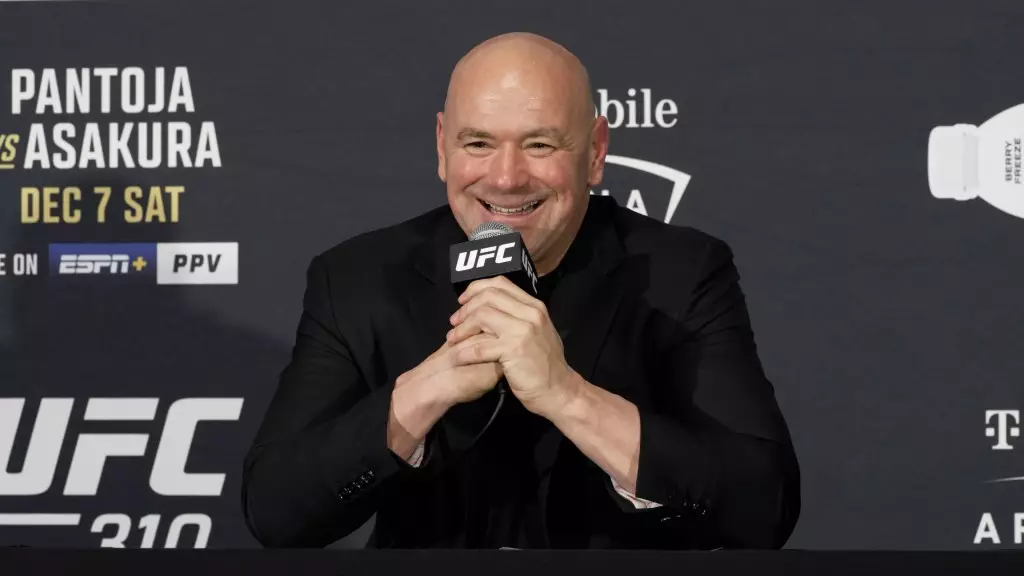UFC 310 marked an electrifying event that captivated fans with an exhilarating main event in the flyweight division. The title fight featured reigning champion Alexandre Pantoja squaring off against Kai Asakura, a noted competitor from Japan’s RIZIN organization. The bout took place at T-Mobile Arena in Las Vegas, a venue known for hosting major sporting events, and it did not disappoint. Pantoja’s decisive second-round submission showcased his dominance in the octagon while simultaneously thrilling spectators with quick-paced action that underscored the technicality of flyweight fighting.
From the onset, Pantoja demonstrated a commanding presence, using his experience to counter Asakura’s initial aggression. UFC CEO Dana White highlighted Asakura’s audacious start, which included an immediate attempt at a flying knee, signaling his determination to secure a memorable first fight in the UFC. However, it was Pantoja’s ability to absorb the pressure and respond effectively that caught the eye of the audience and critics alike. White described the encounter as one that left fans yearning for more, expressing a desire to see additional rounds filled with the same intensity.
The emotional rollercoaster of the fight illustrates the cultural clash within mixed martial arts, where fighters from different backgrounds bring their unique styles into the octagon. Pantoja’s grappling acumen ultimately prevailed, but Asakura’s willingness to come out swinging served as a hallmark of talent and promise that the UFC can harness moving forward.
One of the pivotal elements of UFC 310 was not just the action within the cage, but the discussions occurring outside of it. Nobuyuki Sakakibara, president of RIZIN, was in attendance, presenting a rare opportunity for cross-promotional collaboration. This was a notable moment in the broader landscape of mixed martial arts, as both White and Sakakibara reminisced about their past rivalries while exploring potential partnerships. White’s comments reflect a broader ambition to unite different promotions, especially in light of the burgeoning interest in mixed martial arts within Japan.
As White pointed out, there’s an emerging wave of aspiration among young Japanese athletes who aim to etch their names into UFC history as champions. The synergy between organizations like RIZIN and UFC could forge pathways for these budding talents, facilitating greater opportunities for development and exposure on the international stage.
The implications of UFC 310 extend well beyond the outcome of one bout. The evening stands as a testament to the evolving nature of mixed martial arts as a global sport. As more athletes from diverse backgrounds, such as Asakura, transition into the UFC, the possibilities for thrilling matchups and invigorating rivalries expand significantly.
UFC 310 was a standout event that not only highlighted the thrilling nature of flyweight competition but also hinted at the potential for collaborative growth among international promotions. With champions like Pantoja leading the charge and eager talents like Asakura stepping onto the global stage, the future of MMA looks promising, and fans can only anticipate more action and exciting developments on the horizon.

